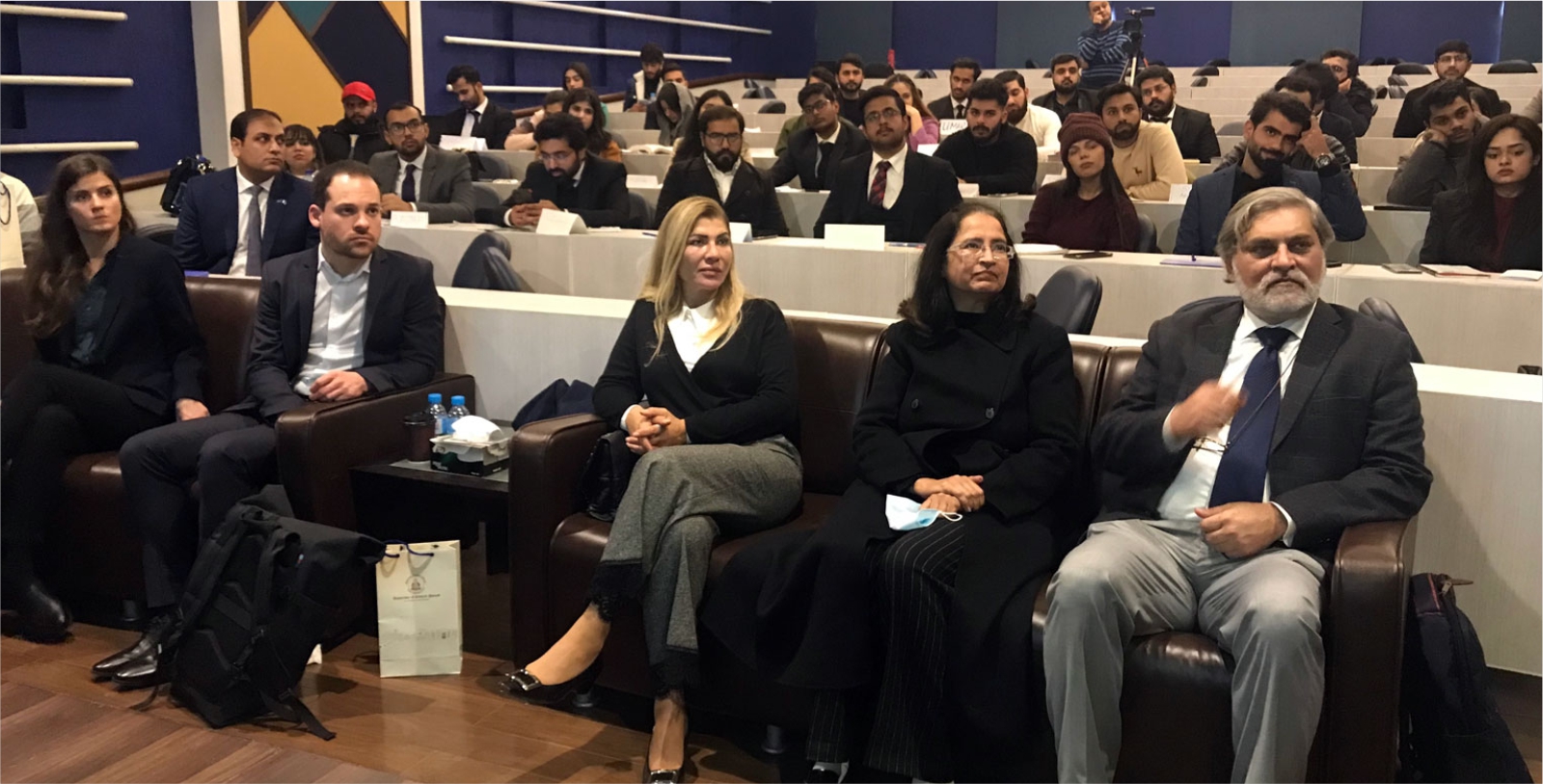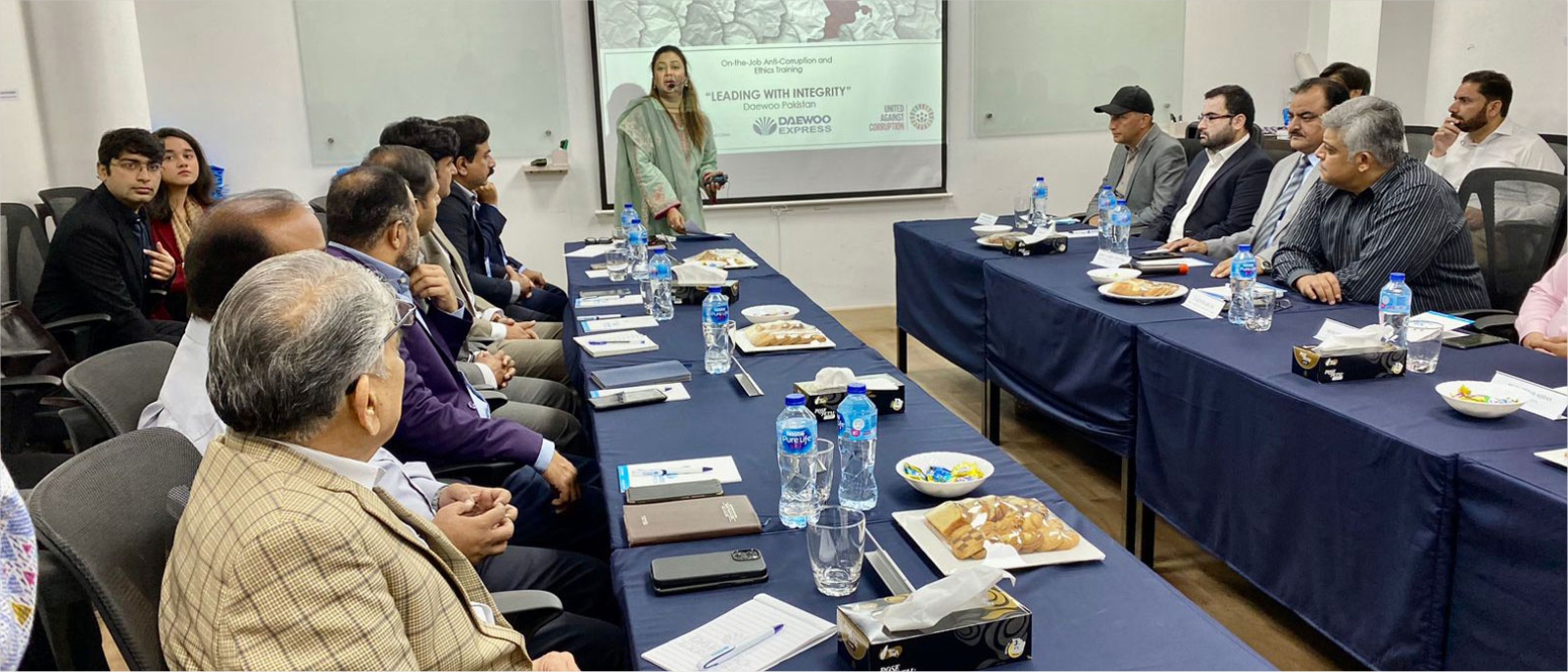
18 April 2023, Islamabad – Integrity and corruption present significant challenges for Pakistan's global reputation and economy. Pakistan ranks 124th out of 135 countries in corruption perception, resulting in an estimated annual loss of $5.5. billion or 10% of GDP. Furthermore, corruption impedes progress towards Sustainable Development Goals (SDGs), hindering efforts to reduce poverty and improve access to education and healthcare. In order to ensure economic recovery and long-term stability, businesses in Pakistan must maintain and conduct due diligence procedures. By adopting transparent and ethical practices, businesses can contribute to Pakistan’s sustainable development goals. To address these challenges, the UNODC Country Programme in Pakistan has actively promoted innovative methods for developing corporate ethics and integrity.
Since 2021, UNODC has been implementing its Global Integrity Education Project (GIEP) in Pakistan. The project is funded by Siemens’ Integrity initiative and is being carried out in collaboration with top academic institutions and private sector organizations. This initiative has been necessitated by the ethical difficulties associated with promoting business integrity in Pakistan. By equipping young graduates with ethical mindsets and methods from the start of their careers, the project aims to empower them as "Ethics Ambassadors" in private sector organizations.
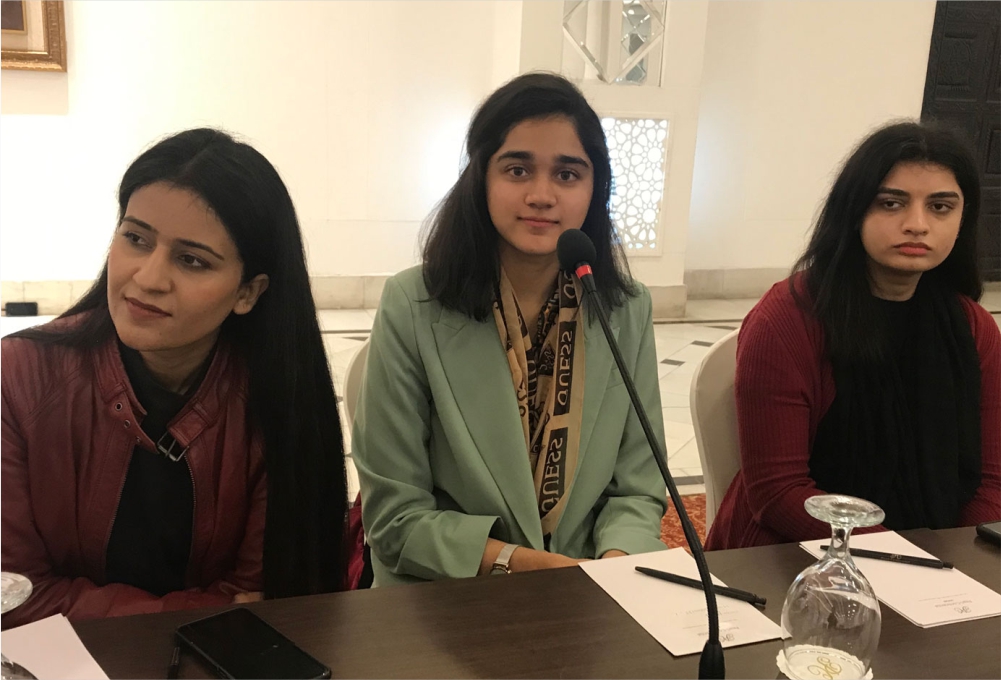
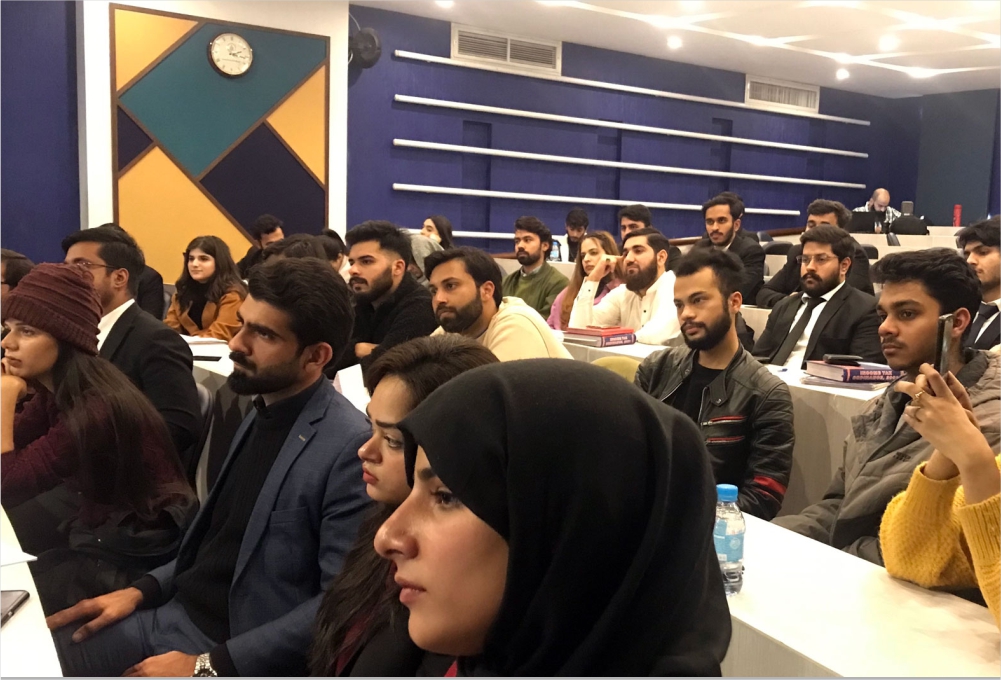
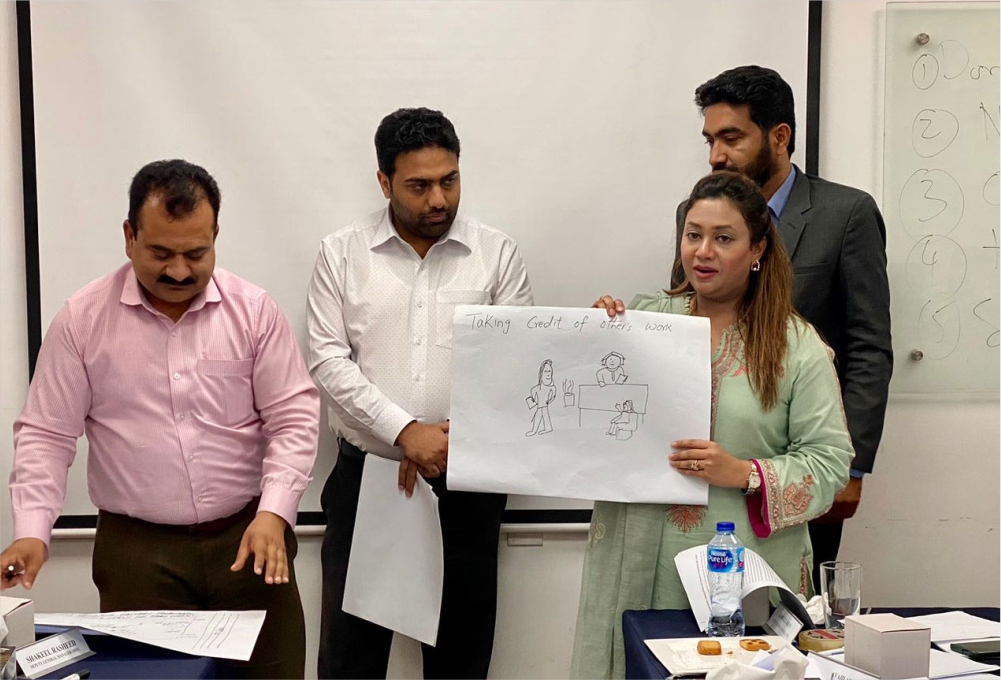
Since its inception, the GIEP has charted a successful journey towards implementing innovations in the delivery of ethical education in Pakistan. A few of the key achievements include:
The Ethics Ambassadors Training Programme (EATP) is a critical initiative under the Global Integrity Education Project (GIEP), aimed at preparing final-year university students in Pakistan to become Ethics Ambassadors in the corporate sector. Through a hybrid, multi-level curriculum, the EATP equips students with the necessary skills and knowledge to promote integrity and transparency in their future jobs. The curriculum is practice-focused and includes thematic modules such as corporate social responsibility, ethical decision-making, and stakeholder engagement, taught by experienced mentors and trainers.
Furthermore, the GIEP has yielded significant results and impact, as follows:
The Global Integrity Education Project (GIEP) in Pakistan is emerging as a significant integrity movement, spearheaded by the enthusiastic dedication of its Ethics Ambassadors. Mahnoor Ahmad, the Ethics Ambassador for Daewoo Pakistan remarked, “This training course has been phenomenal. I began looking at life from a completely different perspective. Working with Daewoo Pakistan, one of the largest transportation companies in Pakistan, I’m eager to put into practice values of integrity and ethical leadership.”Similarly, Umar Farooq, Ethics Ambassador for A.N. Engineering Industries stated, “It has been a huge learning experience for me as a UNODC ethics ambassador with A.N. Engineering Industries. I get hands on opportunities to practically apply my learning. I believe our passion to deliver will keep the values of ethics and morality alive for years to come.”
The accomplishments of GIEP are paving the way for ethical education in Pakistan's academic and corporate sectors, empowering young and creative minds to lead change. The UNODC and its partners envision that this project could transform how ethics and integrity are taught and implemented in the private sector, leading to a more ethical and sustainable future for businesses and communities.
